40 Fruits Name: Fruits are not only delicious but also packed with essential nutrients that promote good health. Knowing the names of different fruits and their benefits can help us make better choices in our diet. Whether you’re a fan of tropical fruits like mangoes and pineapples or prefer the familiar taste of apples and bananas, there is a wide variety of fruits to explore. In this article, we’ll dive into the names of popular fruits and highlight their health benefits. By including a range of fruits in your daily meals, you can enjoy better nutrition and a more vibrant lifestyle. Let’s explore some common fruit names and why they should be a part of your diet.
40 Fruits Name
- Pomegranate
- Apricot
- Banan
- Orange
- Mango
- Peach
- Apple
- Cherry
- Papaya
- Grapes
- Guava
- Pineapple
- Custard Apple
- Watermelon
- Strawberry
- Tamarind
- Coconut
- Avocado
- Blackberry
- Blueberry
- Cranberry
- Gooseberry
- Dragon Fruit
- Fig Fruit
- Jackfruit
- Jujube
- Kiwi
- Lemon
- Monk Fruit
- Muskmelon
- Pithecellobium Dulce
- Plum
- Raspberry
- Sapodilla
- Passion Fruit
- Water Chestnut
- Wood Apple
- Star Fruit
- Mulberry
- Sweet Lime
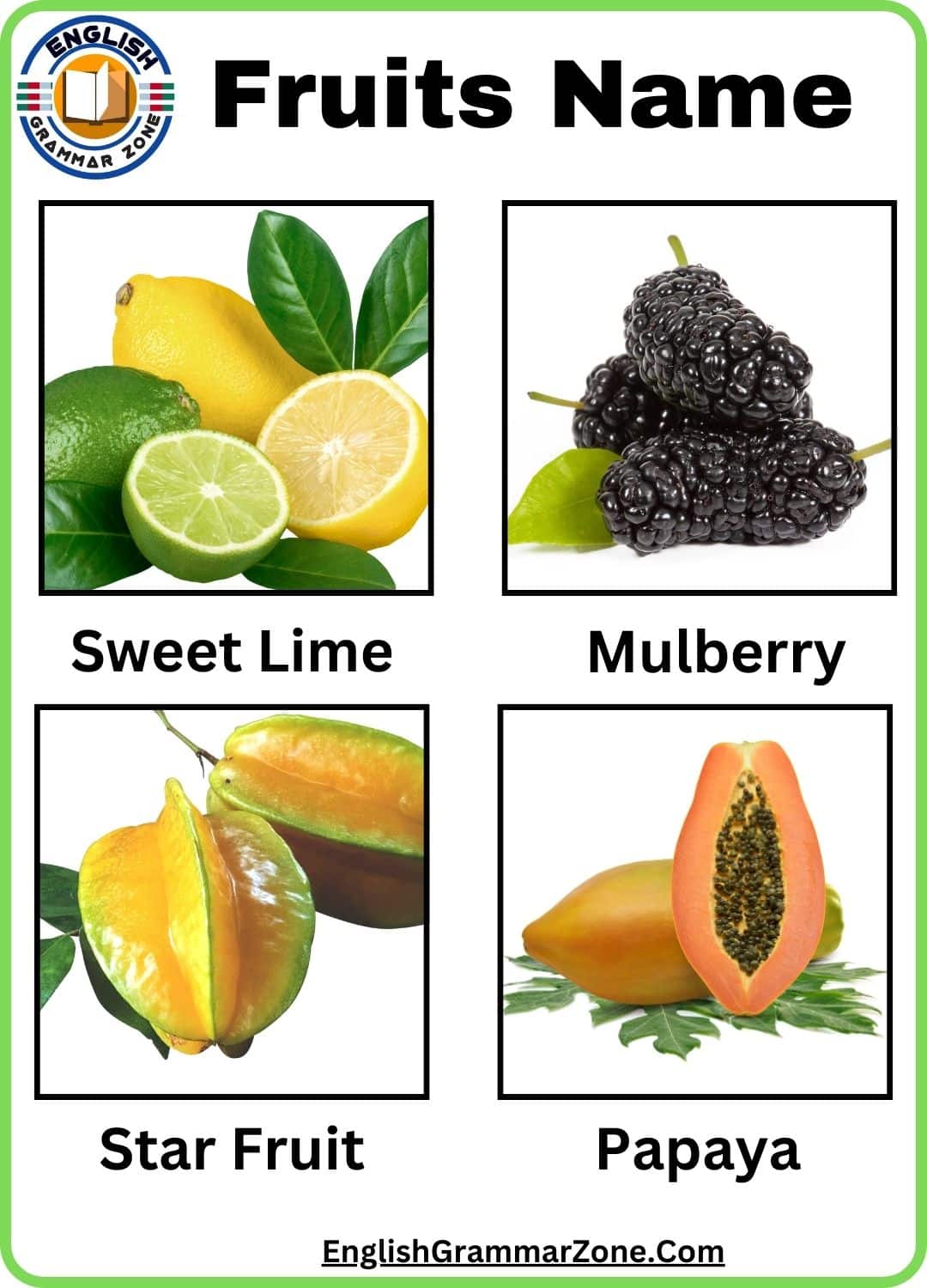
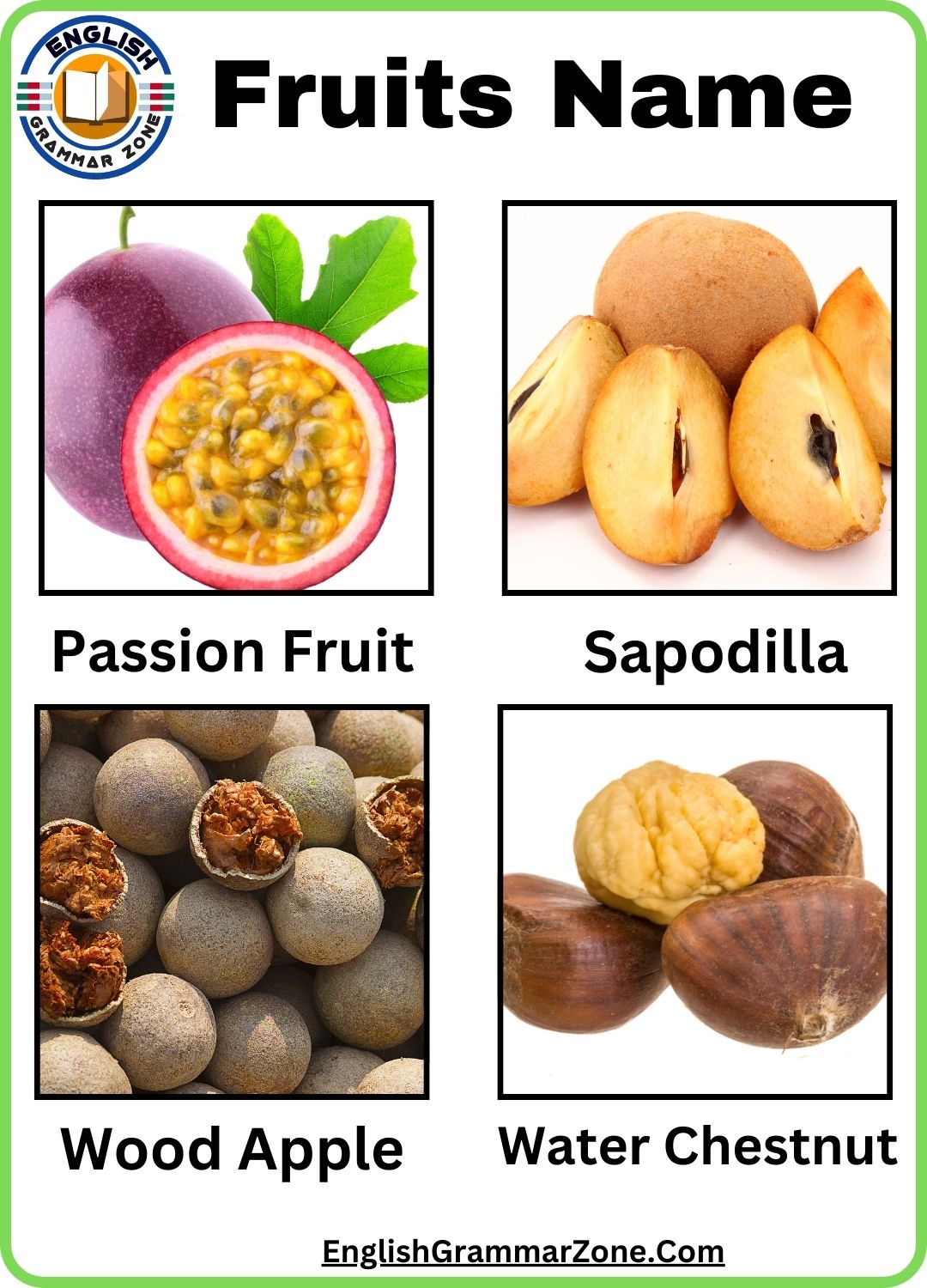
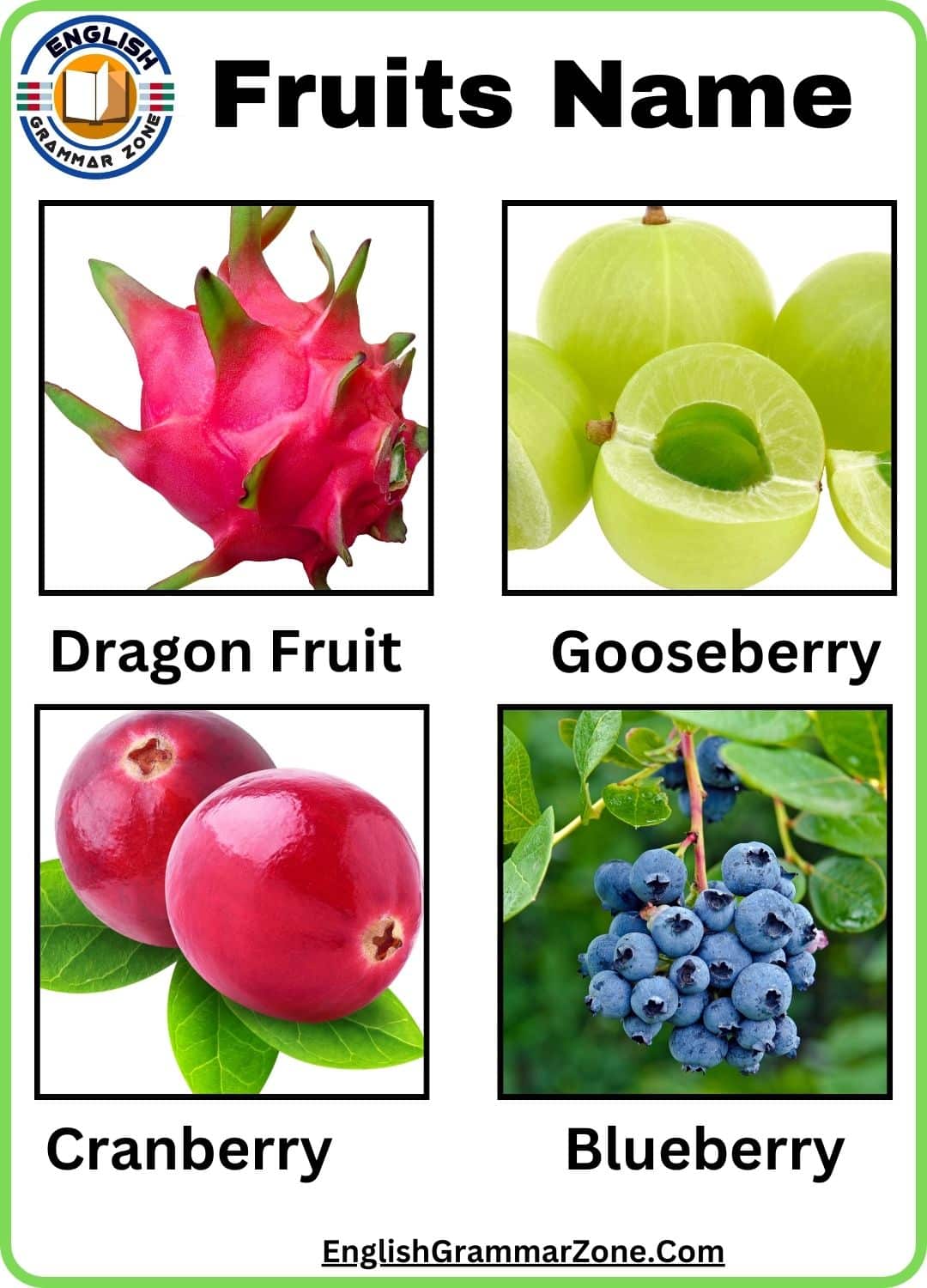
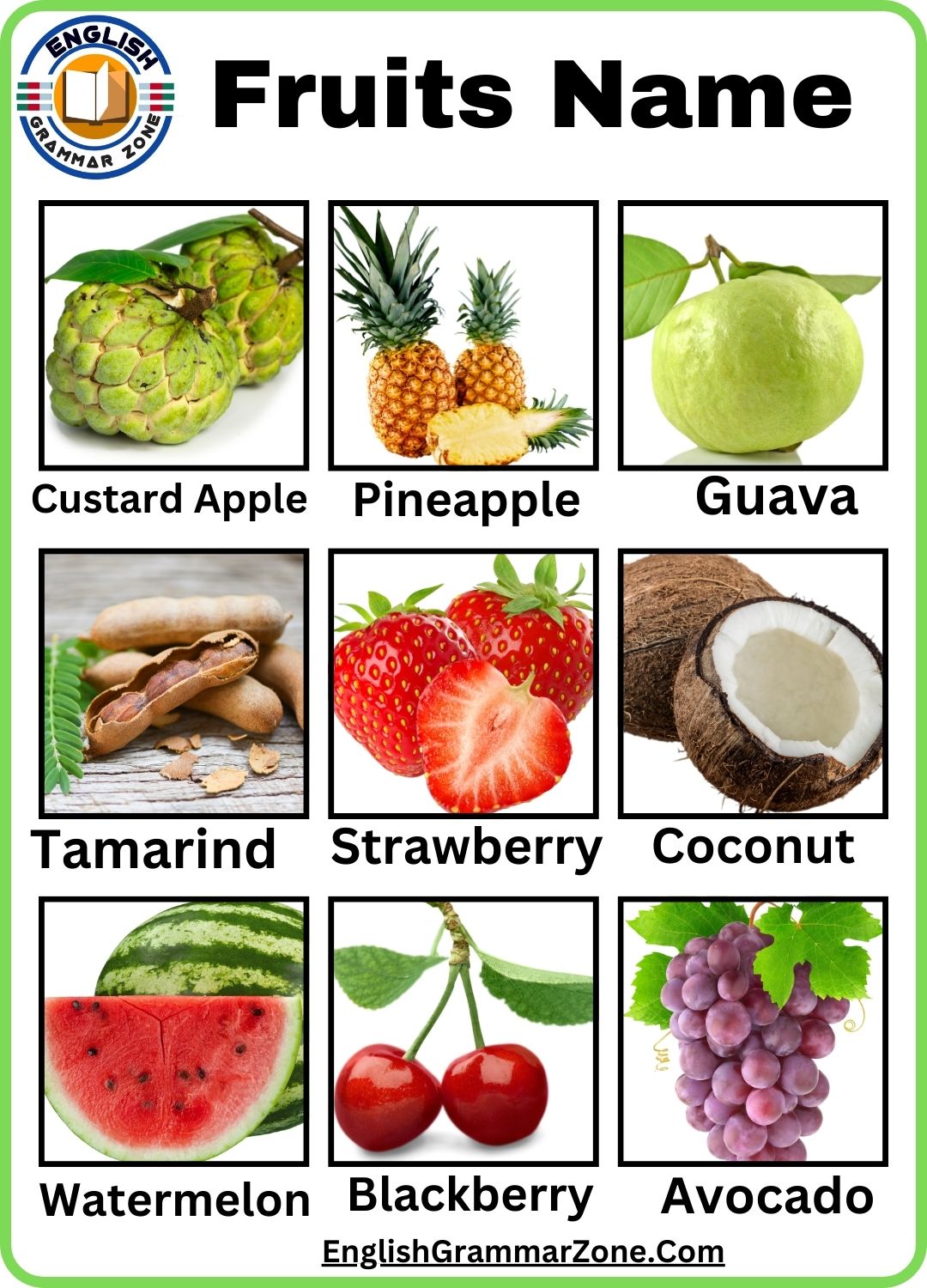

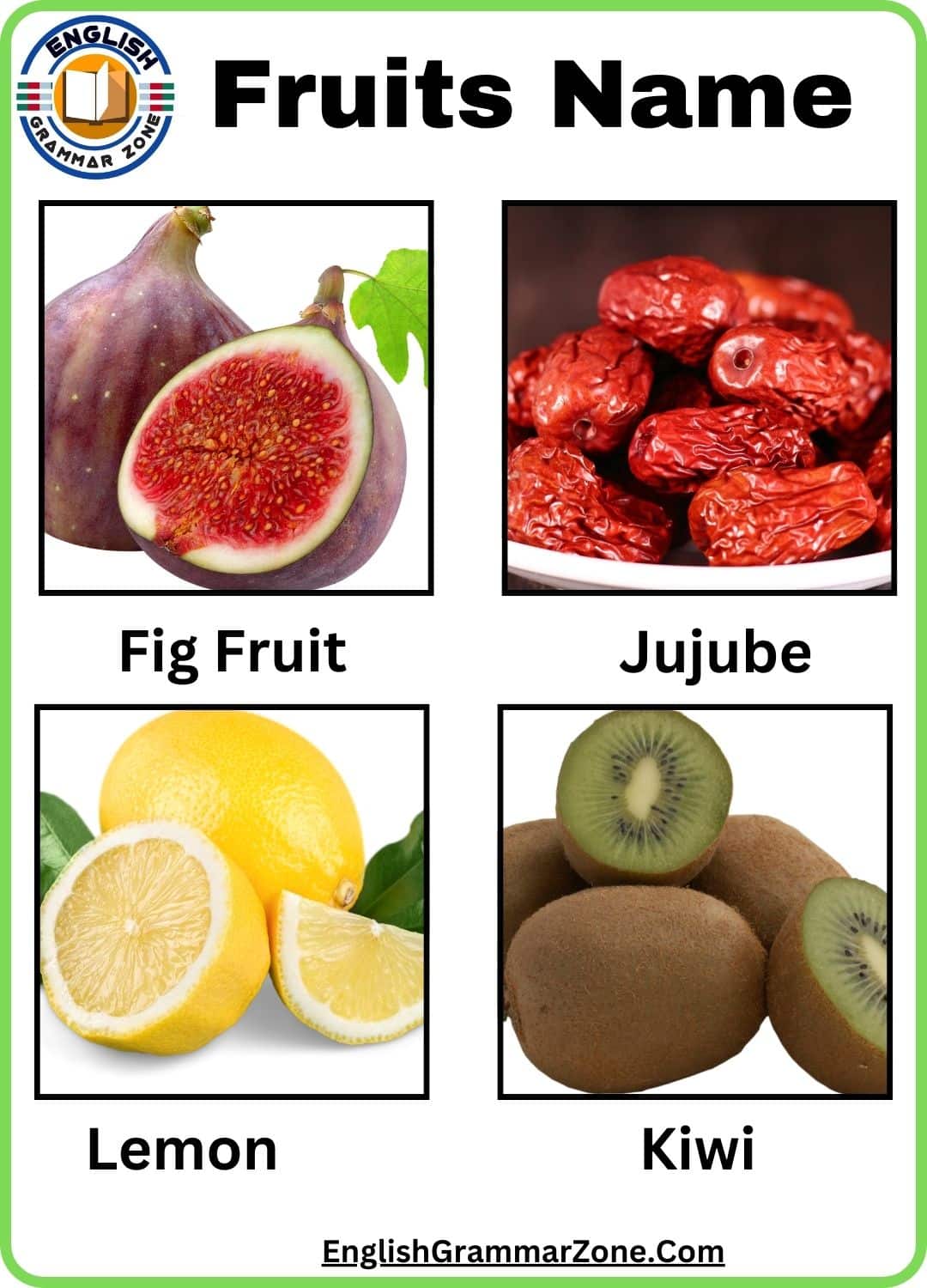
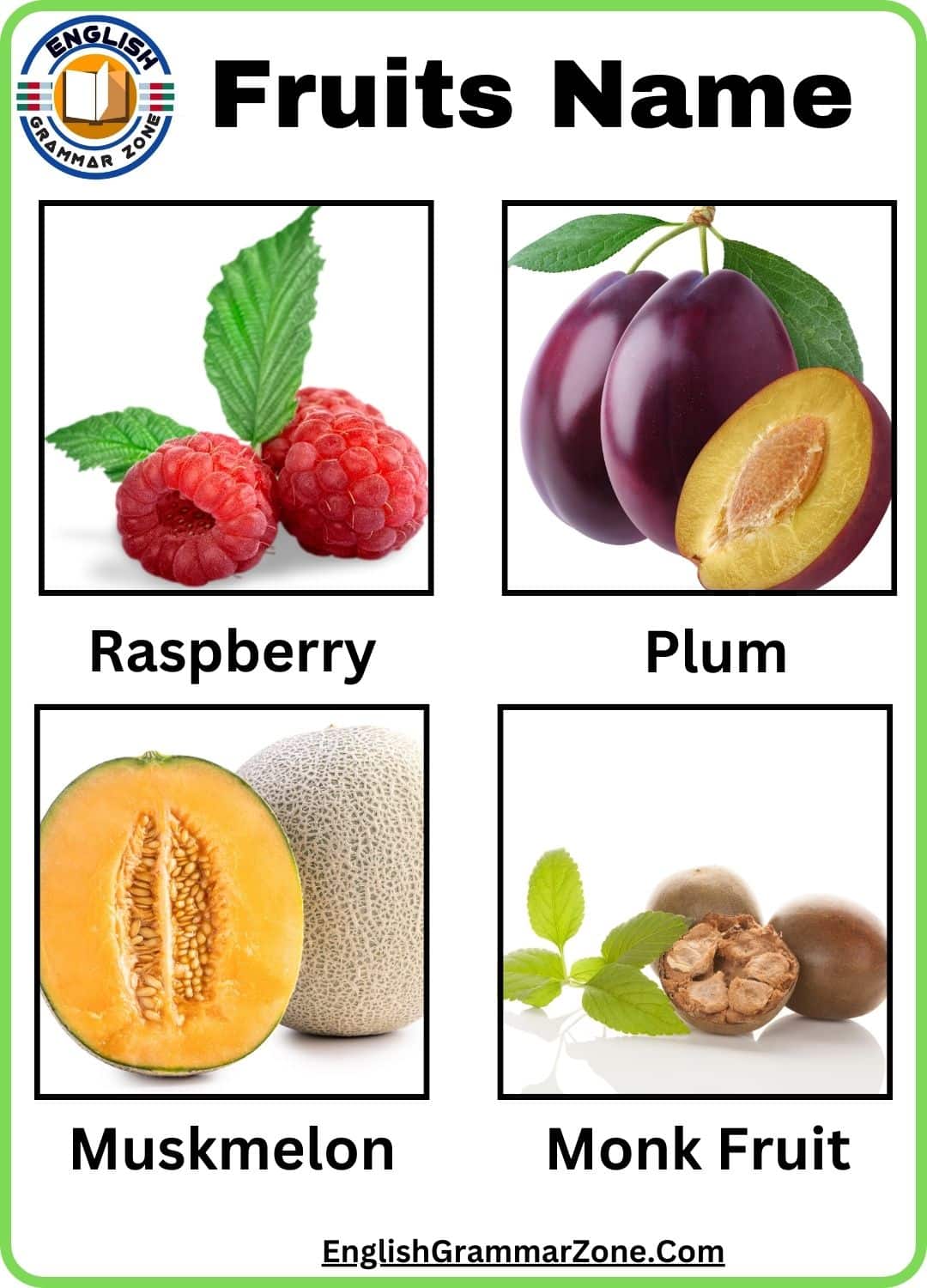
Frequently Asked Questions About Fruits Names
1. What are some common fruits I can include in my diet?
There are many fruits you can enjoy, depending on your taste preferences. Some of the most common fruits include:
- Apple – A popular and nutritious fruit packed with fiber and vitamins.
- Banana – Known for its potassium content, bananas are great for energy.
- Orange – Full of vitamin C, oranges boost immunity and help in collagen production.
- Mango – A tropical delight rich in vitamins A and C, good for skin health.
- Grapes – Small yet packed with antioxidants, which are great for heart health.
Including these fruits in your diet can help ensure you get a variety of vitamins and minerals necessary for overall well-being.
2. Why should I eat different types of fruits?
Eating a variety of fruits is important because each fruit has its unique combination of nutrients. For example, citrus fruits like oranges and lemons are rich in vitamin C, which supports immune health. Bananas provide potassium, which helps maintain healthy blood pressure levels. Fruits like strawberries and blueberries are full of antioxidants, which protect your body from damage caused by free radicals. By mixing different fruits into your meals, you can ensure that your body receives a broad range of vitamins, minerals, and fiber.
3. How do fruits benefit my health?
Fruits offer a wide range of health benefits, such as:
- Boosting immunity: Many fruits, especially citrus fruits, are high in vitamin C, which strengthens the immune system.
- Improving digestion: Fruits like apples, pears, and kiwis contain fiber, which aids digestion and promotes gut health.
- Maintaining healthy skin: Fruits like oranges, strawberries, and papayas are rich in antioxidants and vitamin C, which support skin health and help prevent aging.
- Supporting heart health: Some fruits, including berries and apples, contain compounds that promote heart health by reducing cholesterol levels and improving blood circulation.
Incorporating fruits into your daily routine can contribute to a stronger immune system, better digestion, and improved skin and heart health.
4. How can I incorporate more fruits into my meals?
There are many easy ways to add more fruits to your daily meals. Here are a few ideas:
- Add fruit to smoothies: Blend your favorite fruits with yogurt or milk for a nutritious and tasty drink.
- Snack on fruits: Keep whole fruits like apples, bananas, or grapes in your kitchen for a quick and healthy snack.
- Include fruits in salads: Add sliced strawberries, apples, or citrus to your salads for a refreshing twist.
- Top your breakfast with fruit: Sprinkle berries, sliced bananas, or mango on top of your cereal or oatmeal.
By being creative with your meals, you can enjoy the benefits of different fruits without much effort.
5. Are fruits high in sugar?
While fruits naturally contain sugar, the sugar in whole fruits is accompanied by fiber, vitamins, and minerals, which makes it a healthier option than refined sugars. The fiber in fruits slows the absorption of sugar, preventing blood sugar spikes. However, if you are concerned about sugar intake, it’s a good idea to focus on fruits with lower sugar content, such as berries, apples, and grapefruit.
In conclusion, learning the names of fruits and understanding their health benefits can guide you toward making healthier food choices. Including a wide variety of fruits in your diet not only boosts your health but also adds flavor and variety to your meals. So, next time you’re at the grocery store, pick up some fresh fruits and enjoy their amazing benefits!

